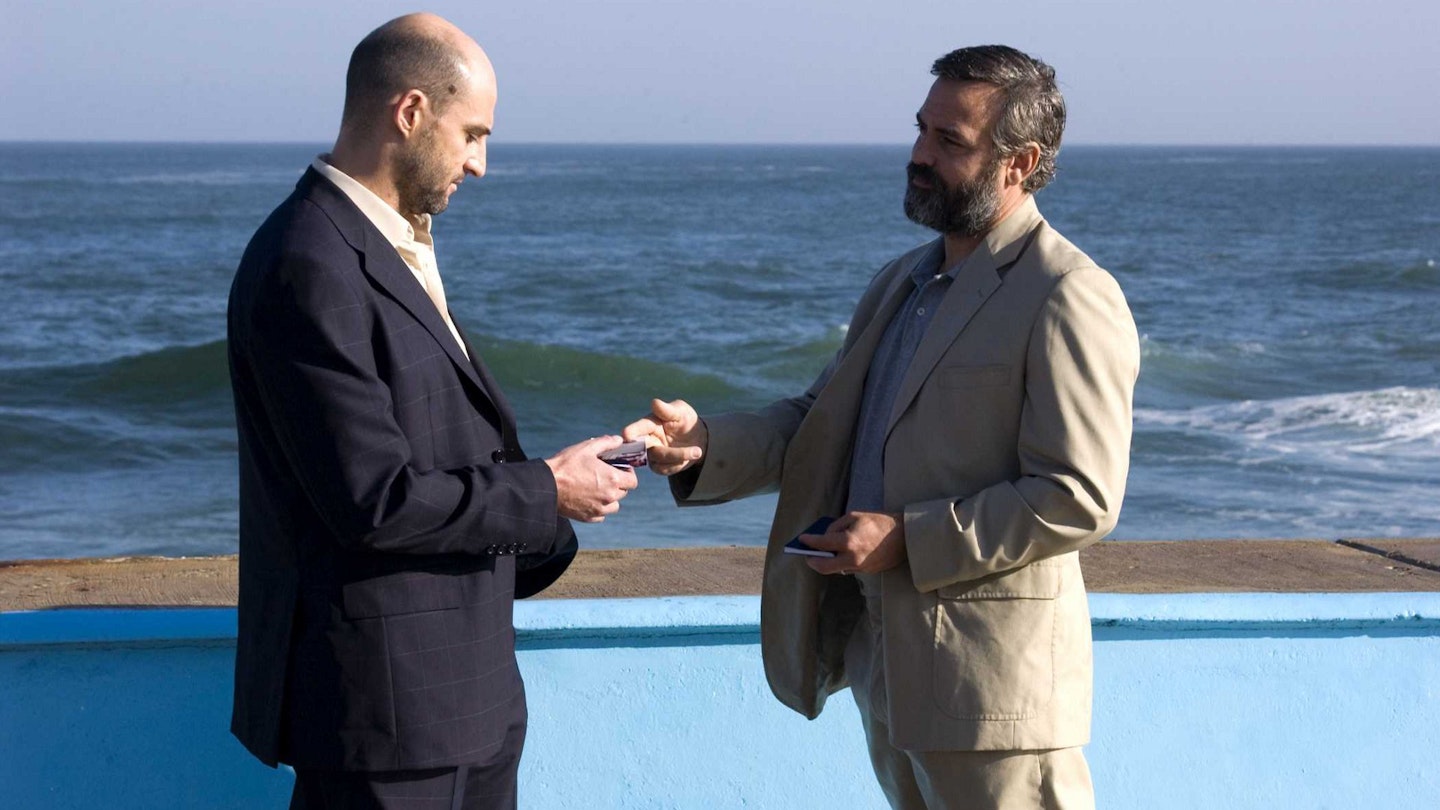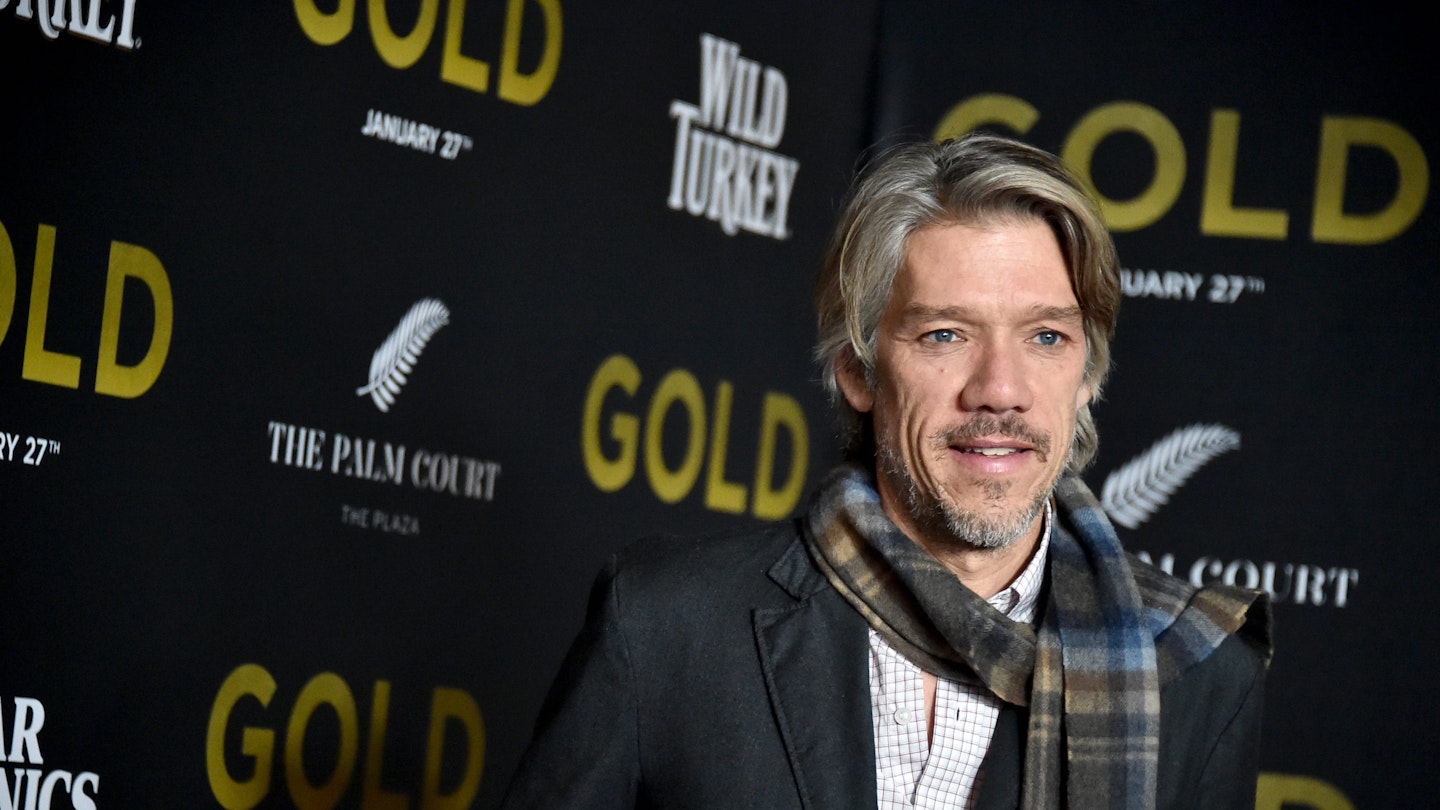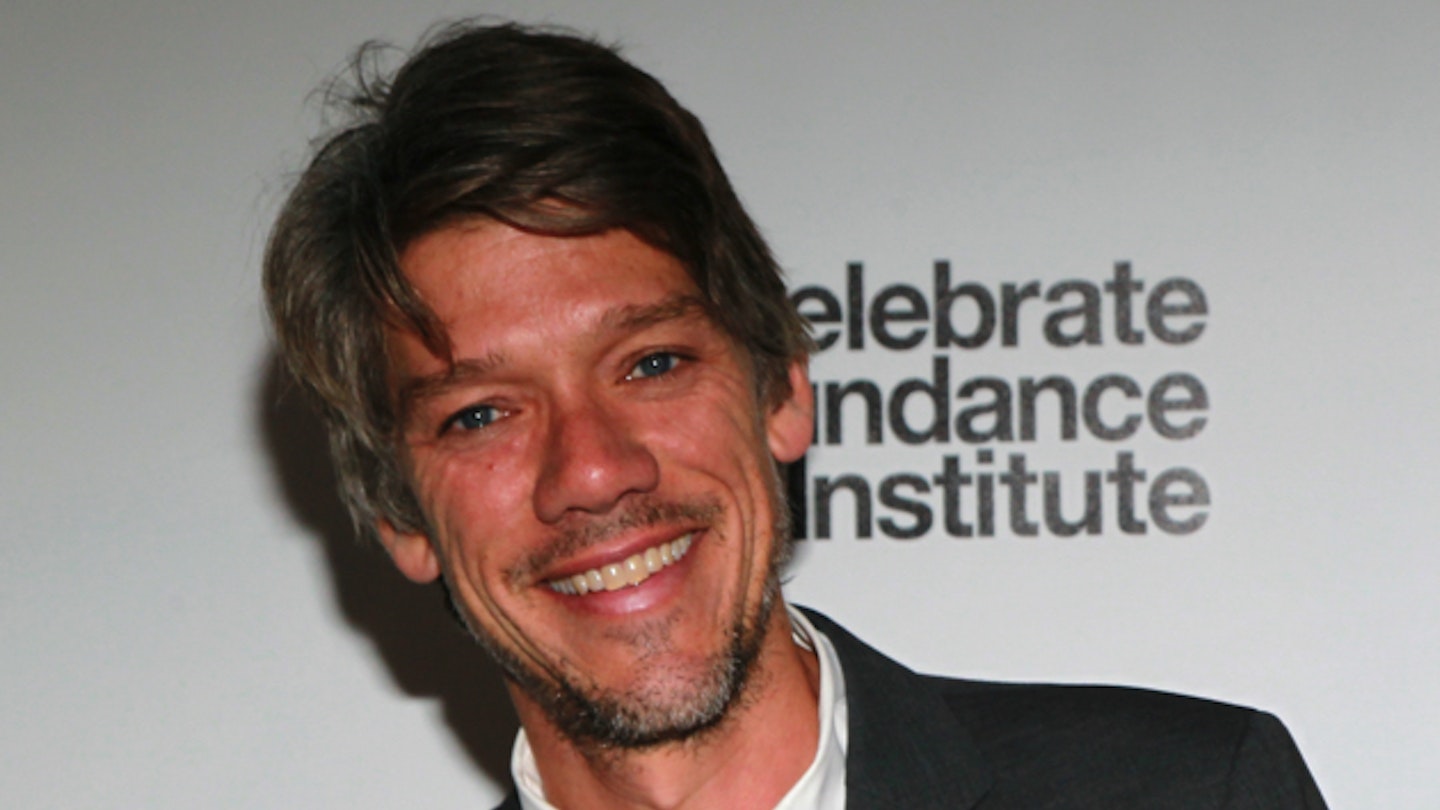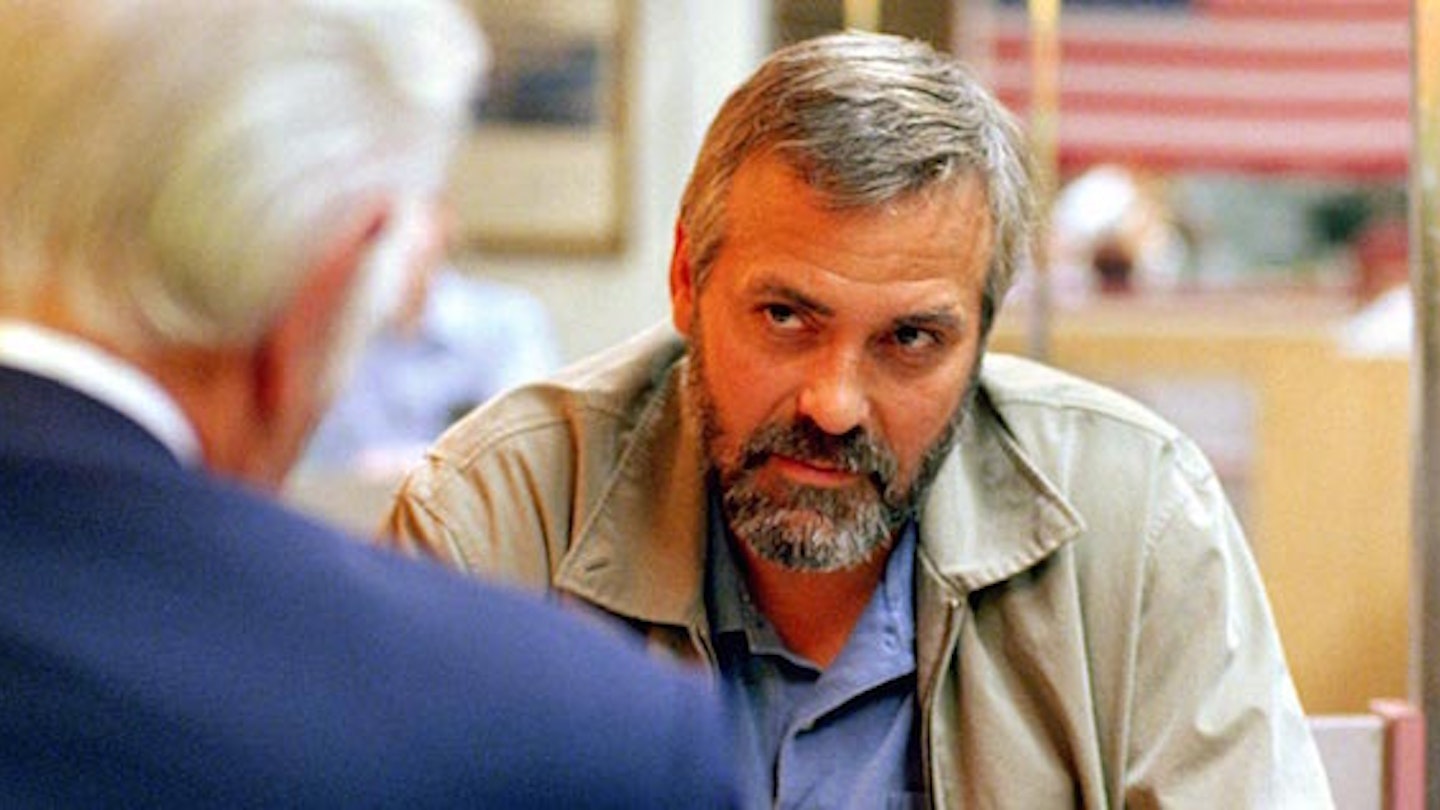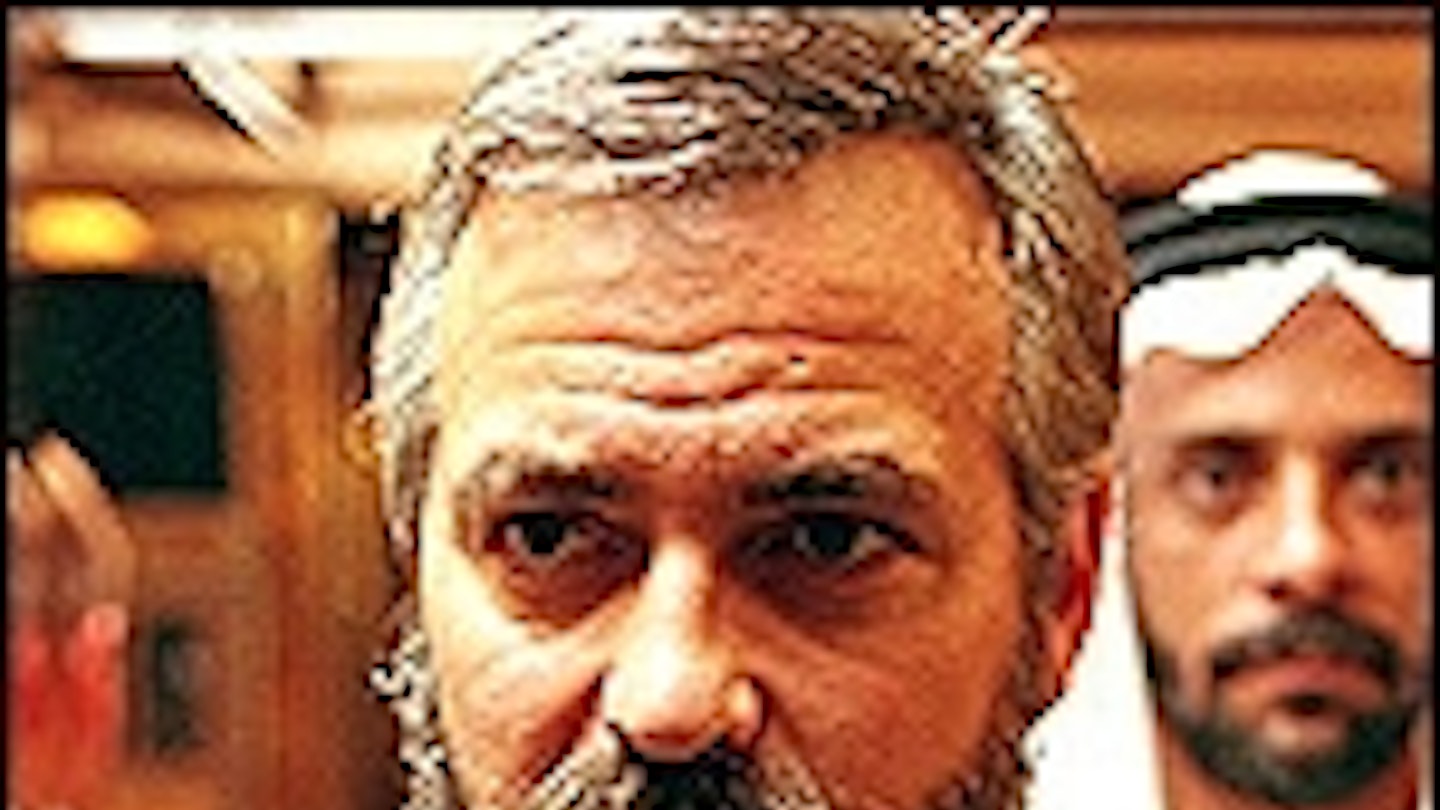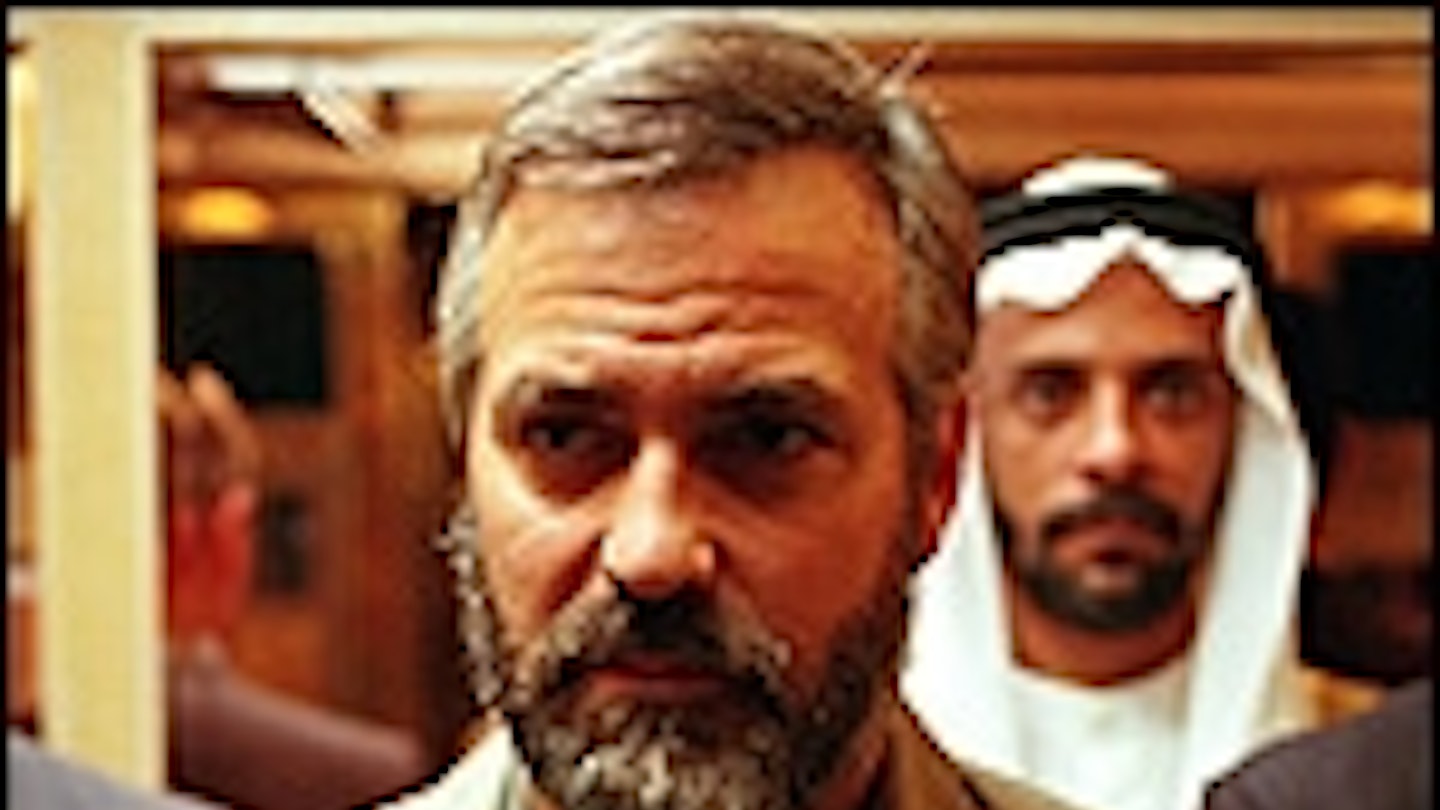When Steven Soderbergh and George Clooney set up their Section 8 production company in 2000, they took as their benchmark American cinema from 1964 to 1976, specifically the comparatively overlooked output of studio stalwarts Sydney Pollack, Alan J. Pakula and Sidney Lumet. Mainstream movies like All The President’s Men, Three Days Of The Condor and Network were assembled according to evergreen genre guidelines, and yet at the same time were daring liberal commentaries on Nixon’s America, pictures that could not have emerged at any other time.
Until recently, Section 8’s mission statement has been little more than a theoretical gold standard, the sort of lofty promise that allows two well-heeled insiders to dabble in offbeat fare like Far From Heaven. However, with the release of Stephen Gaghan’s audacious Syriana, hard on the heels of Clooney’s own stealth weapon Good Night, And Good Luck, it’s become clear that the gold standard is no longer hypothetical. The world has shifted significantly in the last three years and it’s no longer artistic ideals that America urgently requires, but idealistic artists.
Although Syriana shares DNA with the great ’70s conspiracy thrillers and a common purpose with Clooney’s companion picture Good Night…, the movie it’s most clearly patterned after is Steven Soderbergh’s Traffic, which won Gaghan a Best Adapted Screenplay Oscar in 2001. Like the drug trade Traffic carefully picked apart, Syriana tackles a BIG subject — US reliance on foreign oil — by weaving together small stories. By entangling flawed individuals at every level of a complex network, each side of the debate is given a recognisable face.
Of the various faces on show, Clooney’s beard-and-bloat disguise has unsurprisingly hogged the acting plaudits, but the actor puts in an unselfish producer’s performance here; his low-key CIA veteran is visibly uncomfortable on centre stage. Indeed, each of the four main protagonists are unassuming bit-players who must tap hitherto unseen resources if they are to ever shape their destiny. Scenery-chewing is left to the distinguished supporting cast, notably the redoubtable trio of Christopher Plummer, Chris Cooper and William Hurt, plus two faces familiar from British TV — Mark Strong and Alexander Siddig, as a terrorist-for-hire and idealistic prince respectively.
As the story ranges over three continents and the faces multiply, there’s much to admire and even more to absorb in every scene. However, the problem with this kind of narrative tapestry is that the audience is offered heaps of thread and asked to take on faith the grand design.
For much of the opening hour it remains hard to divine anything more than thematic tissue connecting the storylines, and many will pine for the narrative clarity Soderbergh’s experience as editor and cinematographer brought to the superior Traffic.
Still, as soon as the various protagonists attempt to take charge of their own fate, the net suddenly draws tighter and the stories converge in both surprising and tragically predictable ways. As the movie accelerates into a breathless final act, salient details are left behind (none of the personal particulars amount to anything significant), and the narrative never quite justifies the roots-of-terror thread that is central to Gaghan’s thesis, but by the time you can recall the forgotten faces the momentum is irresistible, the climax shattering.
